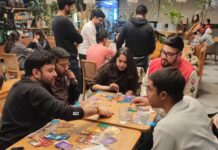India is a land of culture, traditions and a lot of superstitions. Ranging from ‘nimbu-totka’ to ‘dahi shakkar for good luck’, Indian society is known to have a plethora of superstitious beliefs and practices.
But, do you know that there are some practices, which are labelled as superstitions, that have a scientific logic behind them?
Let’s have a look at some of them and decode the logic behind some of our famous Indian superstitions:
1) Superstition: Don’t Go Out During An Eclipse
Logic- To Prevent Loss Of Eyesight
Going out in the sun during a solar eclipse can cause ‘eclipse blindness’ or retinal burns and so to prevent our eyes from burning heat, our ancestors advised not to set out during the eclipse.
2) Superstition: Not Allowing Girls To Do Certain Things During Menstruation.
Logic: To Give Women Time For Rest
Before the 18th century, there were no such things like sanitary pads or painkillers to relieve discomfort caused during the time of menstruation. So, maybe, to take rest, women didn’t voluntarily work during their menstrual cycle and this became a ritual in early Indian society.
3) Superstition: Don’t Go Near A Peepal Tree In The Night
Logic: To Avoid Inhaling Carbon Dioxide
Our ancestors probably knew that plants and trees release carbon dioxide at night, and so to prevent us from inhaling carbon dioxide, they advised us not to go near the Peepal tree at night. The ghost stories associated with Peepal trees slowly took the form of superstition.
Read More: Entrepreneur Allegedly Framed In Fake Narcotics Case For Rejecting Marriage Proposal
4) Superstition: Use of Lemon and Green Chilies To Avert Buri Nazar Or Nimbu-Mirchi Totka
Logic: Use Lemon And Green Chillies As They Are Good For Health
Both lemon and chillies are rich in certain vitamins, which are good for health. Our ancestors probably tried to propagate their use because of their nutritional value but it became a totka as time passed.
5) Superstition: Take Bathe After Attending A Funeral Ceremony
Logic: To Prevent Infection
There were no vaccinations available against smallpox, hepatitis and other contagious diseases during our ancestors’ time. So, to prevent infection from the dead body, our ancestors started the ritual of taking a bath after attending a funeral ceremony.
6) Superstition: The Mourning Family Of A Dead Person Should Not Cook Food Until Shraddha
Logic: To Give Them Time To Cope And Rest
The practice of not letting the mourning family to cook was probably started to give adequate time to the family to rest and cope with the death of a loved one.
7) Superstition: Don’t Cut Your Nails After Sunset
Logic: To Avoid Getting Hurt
In olden times, when there was no electricity, the people used to cut their nails during the day time to avoid getting hurt in the absence of light at night. This slowly became a superstition as time elapsed.
8) Superstition: Don’t Wash Your Hair On A Certain Day
Logic: Saving Water
Not washing hair on certain days like Tuesday or Thursday is attributed to saving water during the olden days.
9) Superstition: Eat Curd And Sugar Or Dhahi Shakkar Before Heading Out
Logic: To Keep Oneself Cool
Eating curd gives an instant cooling effect to the body, which is very helpful while heading out in daylight. While, consuming sugar gives instant glucose, energizing the body. This practice slowly started being associated with good fortune.
10) Superstition: Plastering Floor With Cow Dung Is Auspicious
Logic: It Acts As A Disinfectant
Plastering the floor with cow dung disinfects the house and is also proved to give an instant cooling effect during hot summers, that’s why ancestors called it auspicious.
Thus, many of our Indian superstitions were rituals and practices that took the form of superstitions during the course of time!
Image Credits: Google images
Sources: India Today, Times of India, India Times
Find the blogger: @fulara_richa
This post is tagged under Indian superstitions, scientific reasons behind Indian superstitions, logic behind Indian superstitions, facts on Indian superstitions, Indians, Indian society, India, Indian culture, superstition, superstitious beliefs, superstitions in India, superstitious beliefs of Indians, Indian traditions, logic, scientific reasons, science behind Indian superstitions, science behind superstition
Other Recommendations:
Father Stan Swamy, Activist, Falls Prey To India’s Poor Judicial System







































